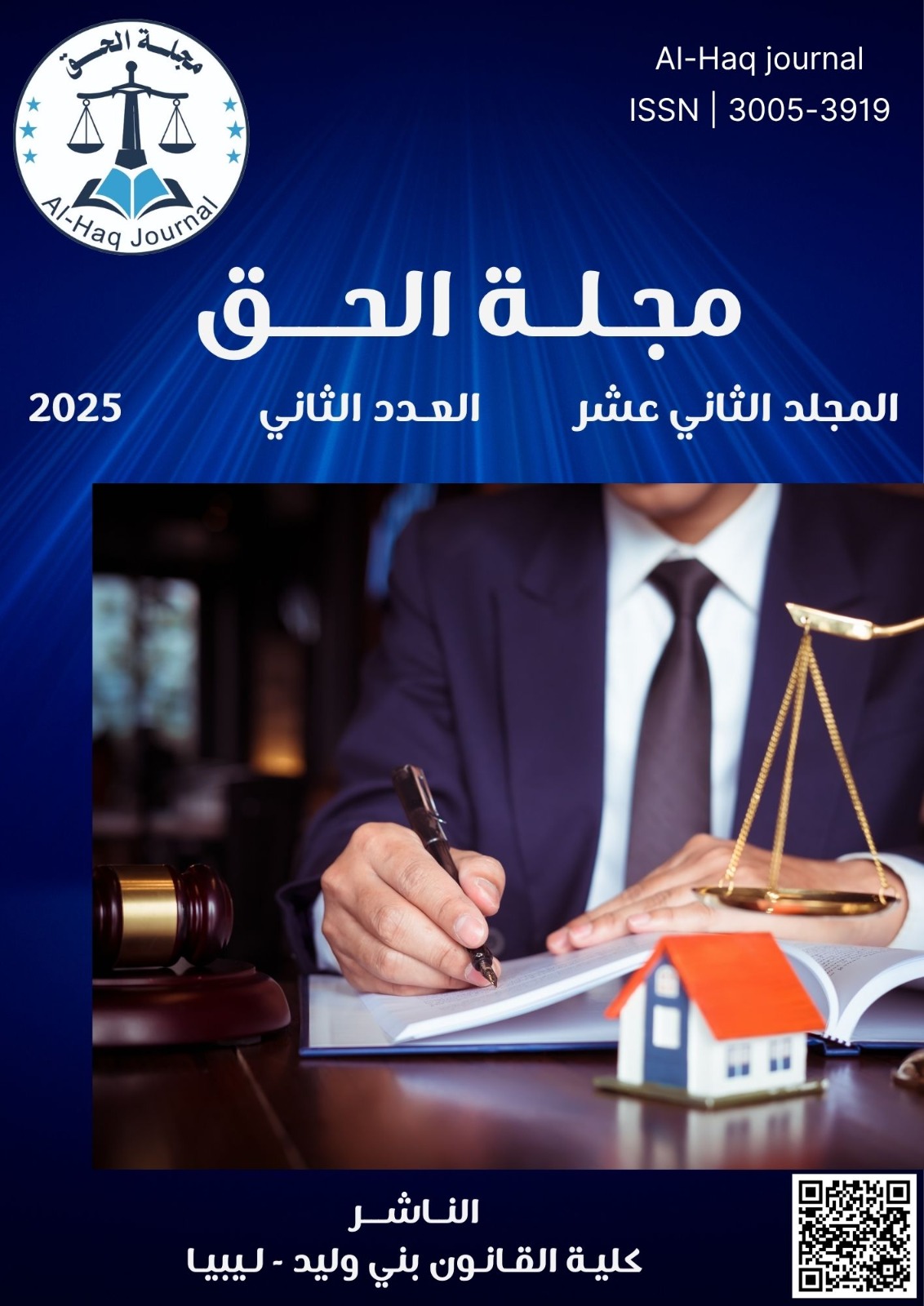Developmental Approaches to Contracts in Islamic Banks An Applied Jurisprudential Study
DOI:
https://doi.org/10.58916/alhaq.v12i2.413Keywords:
Sharia supervision, development contracts, Islamic jurisprudence, financial banksAbstract
This study examines the methods and forms of developmental contracts in financial institutions in light of Islamic jurisprudence (fiqh). It aims to clarify the concept, characteristics, and features of developmental contracts, while explaining the theoretical framework of Sharia supervision as a fundamental criterion for evaluating these contracts. The study also explores practical applications of developmental contracts in the Libyan Development Bank. The research problem centers on the question of the legitimacy of developmental contracts and the identification of their Sharia-based controls. The application of such contracts in financial institutions requires an in-depth analytical study to ensure their compliance with Islamic legal principles. Since Sharia supervision serves as a key criterion for assessing and regulating developmental contracts in banking practices, it guarantees their integrity and protection from prohibited elements such as fraud and usury (riba). The study adopts a descriptive-analytical approach, relying on both primary and secondary data gathered from relevant jurisprudential sources, peer-reviewed journals, and academic research websites to analyze texts and evaluate practical implementations. The findings reveal that developmental contracts represent one of the most important contemporary Sharia-compliant financial tools, as they balance economic development requirements with Islamic legal standards. Furthermore, the Libyan Development Bank provides a practical model that can be developed and generalized to other financial institutions through the adaptation of developmental financing contracts consistent with Sharia principles, ensuring the absence of riba and gharar (uncertainty).
Downloads
Downloads
Published
Issue
Section
License

This work is licensed under a Creative Commons Attribution-NonCommercial 4.0 International License.









